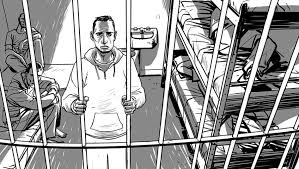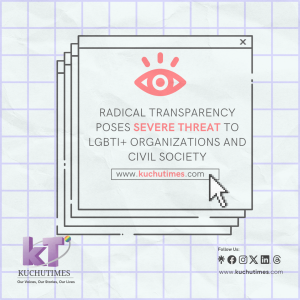Tunisian authorities have aggressively encroached on the right to privacy of suspected homosexual men to facilitate arrests. According to a recent report released by the Human Rights Watch on 8th November 2018, several gay men alleged to be involved in same sex relations have had their phones confiscated by the police to scour for evidence of sodomy. Homosexuality has been criminalized under Article 230 of Tunisia's penal code since it was introduced by the French in 1913 during the colonial era. Gay relations between two consenting adults is currently punishable by 3 years in prison.
LGBT Tunisians are often arrested through reports of disputes among themselves to the police or by families and neighbors. A.C, a gay Tunisian national shared his experiences of arrest and detention with Human Rights Watch. The 18-year-old student was first detained for homosexuality in August 2017 when he was just 17 years of age after his two sisters denounced him for being gay. His most recent ordeal was on 2nd September this year when he and his boyfriend were apprehended while they run some errands together. The police claimed that A.C's family filed a complaint against him and took him away to Hay Hlel police station located in the Tunis capital. A.C’s sexuality was questioned and his phone was searched for personal information that would implicate him for homosexuality. A prosecutor issued a warrant to detain him for eight days in Bouchoucha detention centre until 20th September 2018 when he was released with no charge.
Most men arrested and detained for homosexuality in the North African state relate to A.C’s demise. Some further allege that they are mistreated in custody through sexual harassment by the police itself and forceful anal exams for more evidence that will be used to incriminate them in courts of law. These tests are imposed on them especially by the prosecutors to determine their sexuality. Constitutionally, the anal tests can only be done by consent. But in reality, if the suspect refuses to comply, the authorities can use this as automatic evidence of guilt. The victims that have experienced this level of torture claim that they have been denied legal representation before a judge. And while some have spent months in prison, others that have been acquitted of these charges have fled to European countries for asylum since they barely have anything left back home.
Human Rights Defenders and LGBT campaigners like the Tunisian Association of Democratic Women and Association Shams continue to strongly advocate against violence of sexual minorities especially gay men in prison as they repeal article 230 of the penal code. The Director of Human Rights Watch in Tunisia, Amna Guellali said, "The Tunisian authorities have no business meddling in people's private sexual practices, brutalizing and humiliating them under the guise of enforcing discriminatory laws. Tunisia should abolish its antiquated anti sodomy laws and respect everyone's right to privacy."
On 11th October 2018, 13 members of the Tunisian Parliament introduced a draft legislation for a code on individual freedoms that incorporates several proposals from the presidential commission including abolition of Article 230. Human Rights Watch further proposed that public prosecutors should abandon prosecutions under the anti sodomy law while the responsible ministries should investigate reports of the ill treatment of gender and sexual minorities in Tunisia as a strategy to pave way to the end of human rights violations in the country.




